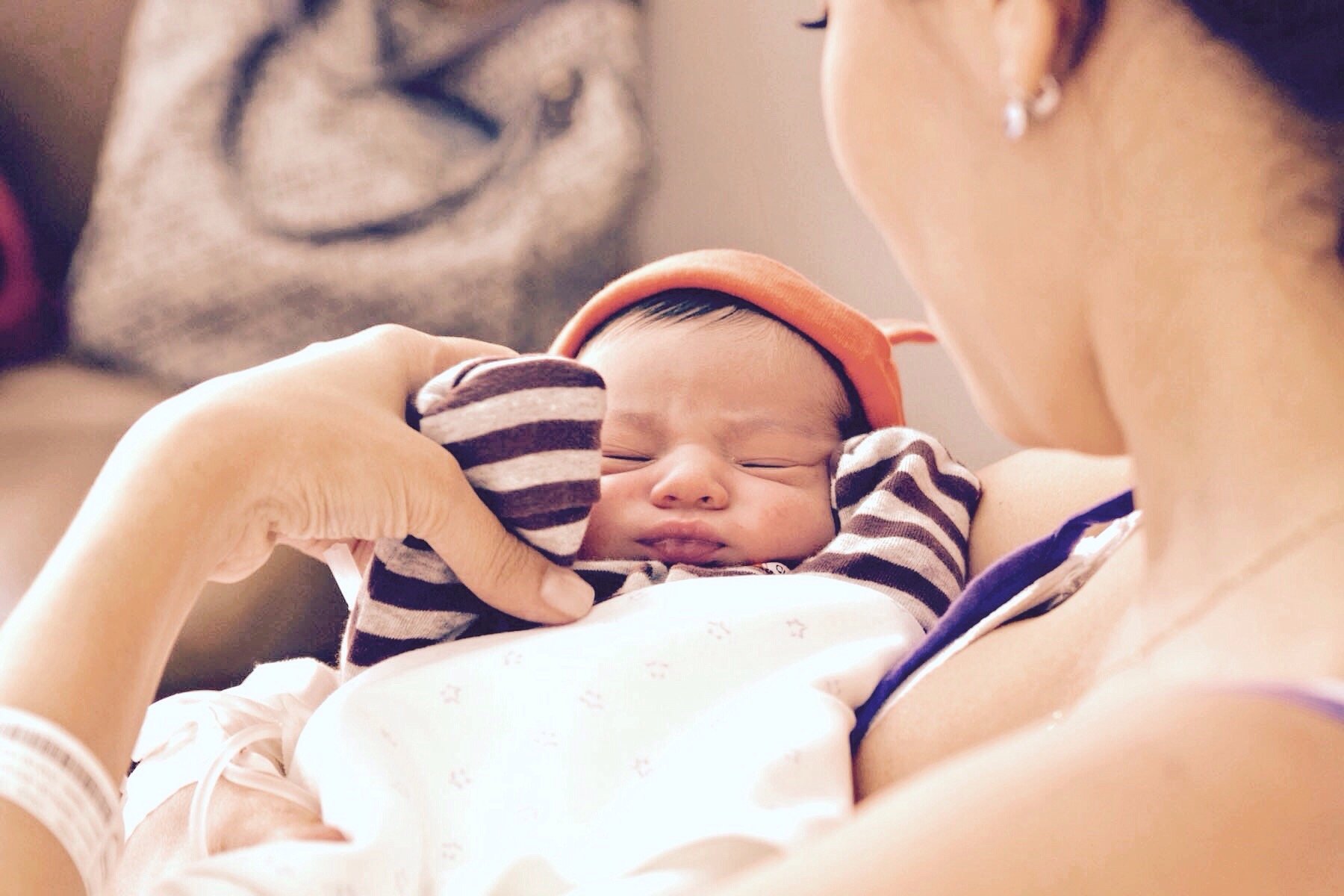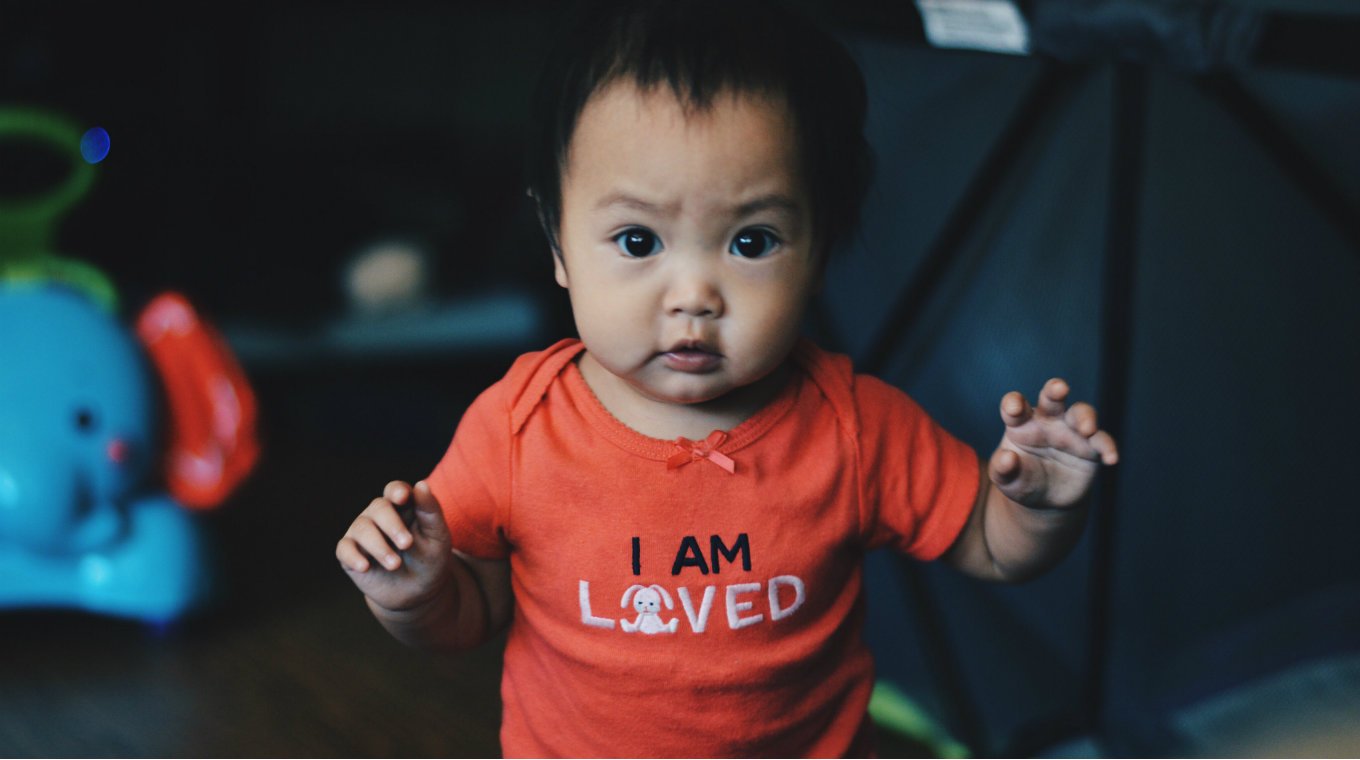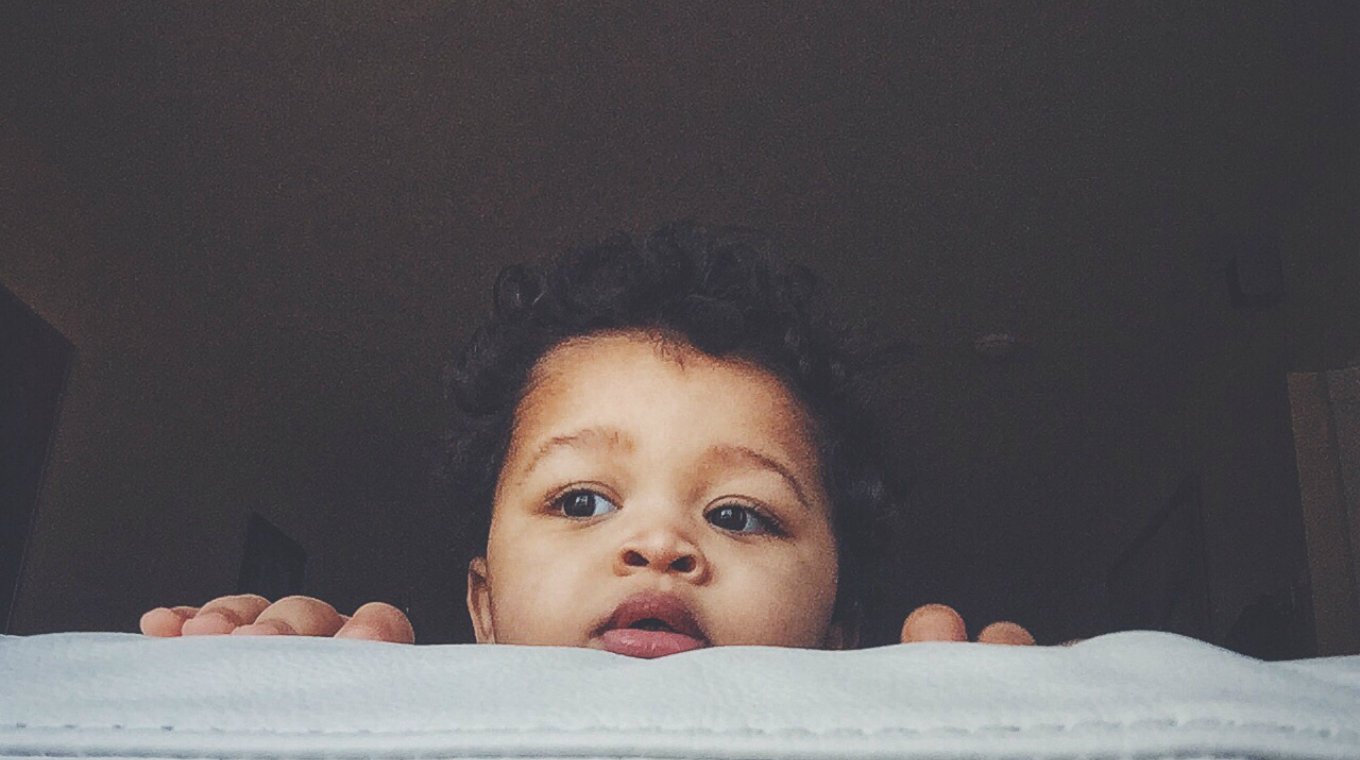
IN THIS ARTICLE
Life with a new baby is a series of questions: Am I doing this right? When will she ever sleep at night? What were they thinking when they let us bring a baby home from the hospital? Is my baby grunting? And if so, what the heck does that mean?
It can be so overwhelming to have a new baby — it’s easy to wonder and worry about every noise they make. It turns out that babies are very noisy creatures, and that sighing, cooing, and even grunting are normal noises for them to make. While most grunting isn’t something to worry about, there is something called “grunting baby syndrome” that is worth knowing about, especially if your baby’s grunts seem to be connected to having a bowel movement. Read on to find out more about what your baby’s grunts could be telling you.
What is grunting baby syndrome?

If your newborn is grunting, turning red, writhing, or showing signs of strain while trying to poop, they might have a condition called infant dyschezia, or grunting baby syndrome (GBS). While your baby turning red or seeming to work hard to poop might seem concerning, it’s actually fairly normal and probably not a cause for concern.
According to well-known pediatrician Dr. Harvey Karp, author of Happiest Baby on the Block, “It is hard to poop as a baby, because you have to do opposite things — tighten your stomach muscles and relax your anus, at the same time.”
A new baby’s body needs to get the hang of the using their abdominal muscles to move poop and gas through their system while also relaxing their pelvic floor, something that takes some practice.
Does grunting baby syndrome hurt?
Babies can definitely seem uncomfortable during bowel movements if they have GBS because they are working so hard to figure out how to poop. The good news is that researchers believe that their discomfort is short-lived and resolved as soon as they complete their bowel movement.
Is it grunting baby syndrome or constipation?

Some parents might mistake the grunting associated with grunting baby syndrome as a sign of constipation, but it’s important to know that GBS is different. Constipation is fairly rare in infants and is marked by hard or pellet-like poops and infrequent bowel movements. With grunting baby syndrome, babies still poop regularly and are have bowel movements that are generally soft or semi-solid. If you suspect it’s constipation, check with your doctor.
When to see a doctor
If your baby is grunting but it doesn’t seem to be connected to having a bowel movement, you’ll want to talk to mention that to your doctor, as it could be a sign of acid reflux. If your baby is grunting and seems to be having other respiratory issues, like wheezing, bluish lips, or fingernails, or an increased breathing rate, you’ll want to contact your medical provider immediately, as these can be signs of respiratory distress which can be serious, especially in infants.
How to treat grunting baby syndrome
The best way to treat GBS is time! In most cases, babies who have GBS will get the hang of the muscle control needed to poop within a few weeks of birth. Some doctors may suggest anal stimulation using an infant thermometer to help a baby have a bowel movement, but this approach can be controversial, as a baby may come to rely on that stimulation to be able to poop and it might slow them down when it comes to learning the right process to poop. Do not attempt treatment for this condition without talking to your doctor first.
The good news about grunting baby syndrome

If your baby is grunting or turning red while pooping, don’t feel bad about taking a few videos or pictures to remember it, because it probably won’t last. If it makes you laugh to hear them grunting like a weight lifter while they fill their diaper, you don’t need to feel any mom guilt about that.
“Producing the grunting sound allows them to apply the extra power needed to have a BM. During this, they may make strange faces and even turn red, but it doesn't mean there is anything wrong with them or even that they are uncomfortable,” notes Dr. Eric Morley, a pediatrician with the Memorial Care Medical Group. Your baby’s grunts are just a sign that they are figuring out one of life’s most important tasks – pooping!




